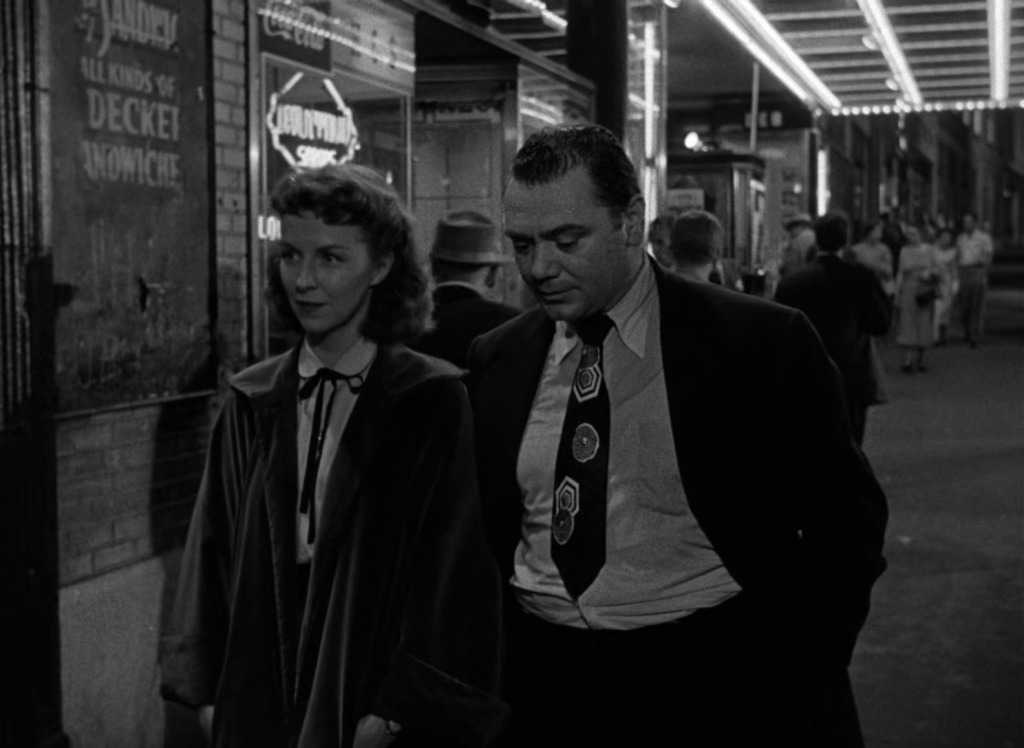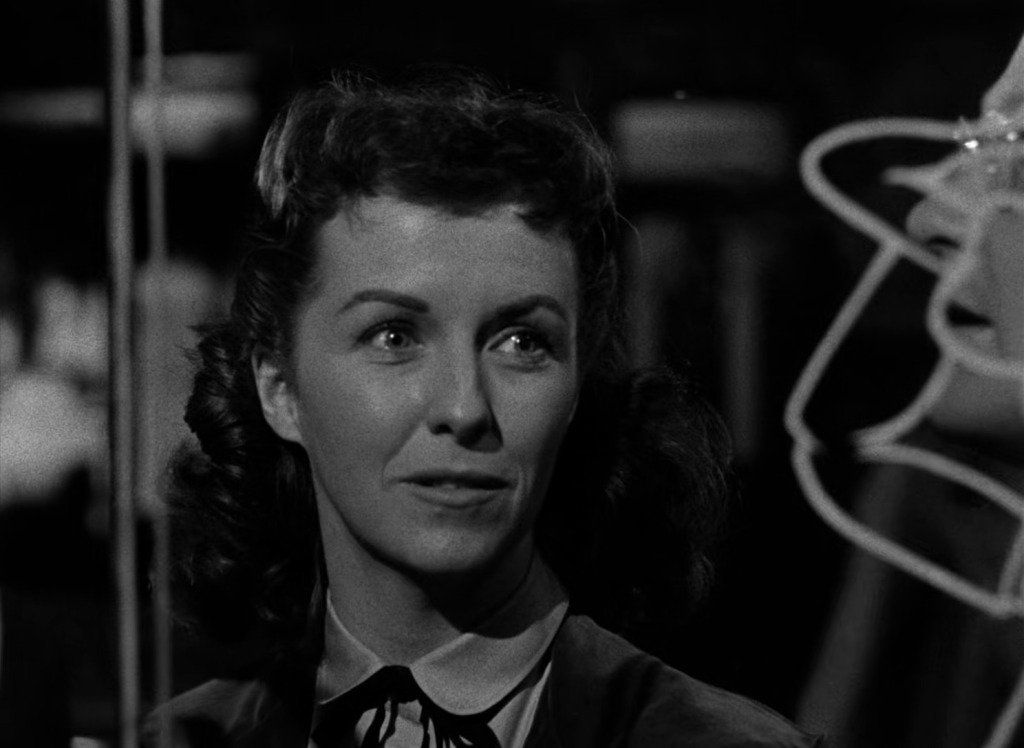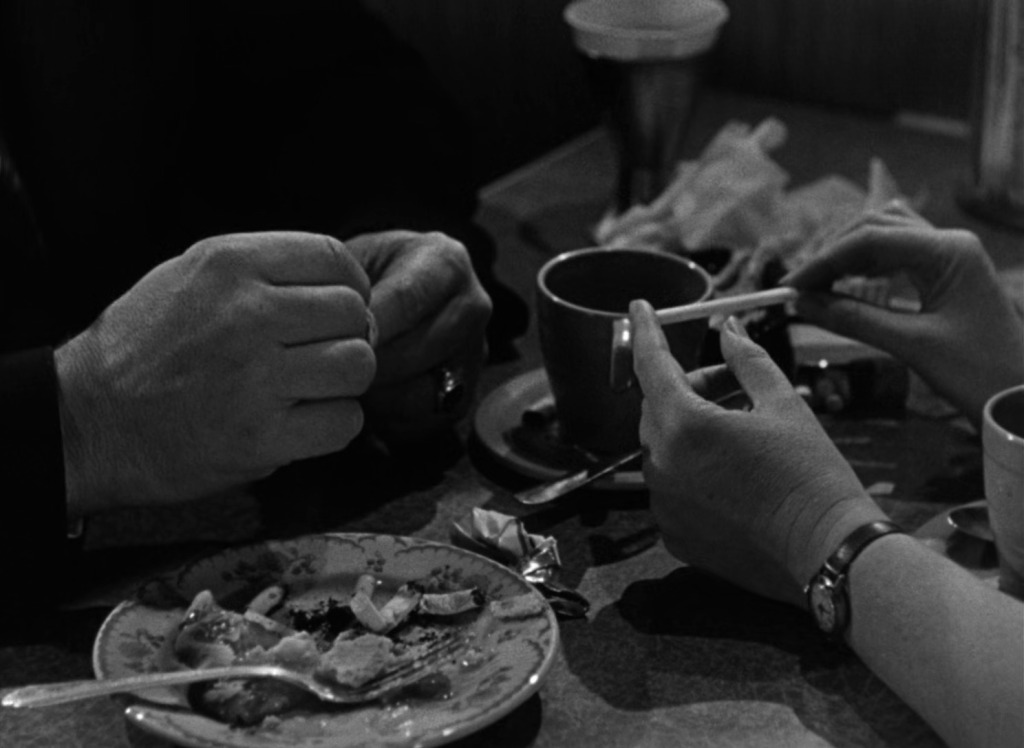“Whatever it is that women like, I ain’t got it.”
Summary: In this personal dive into the 1955 classic “Marty,” the writer shares how a simple Instagram reel led to a profound connection with the film. The writer sees his own life mirrored in Marty’s story – the rejections, the loneliness, and the struggle to stay kind in a tough world. The piece explores the timeless struggles with societal and family expectations and celebrates the rare, genuine connection between Marty and Clara. Through this heartfelt analysis, the writer finds hope and a sense of camaraderie with Marty, making this classic film feel like a conversation with an old friend.

by Baran Özer
Until two weeks ago, I had no idea that the film “Marty” (1955) even existed. One of the rare and valuable things Instagram reels gave me was the scene of Marty and Teresa at the dinner table. After watching this scene, I understood that this film was about the process of my life so far because that dialogue of Mary and his mother Teresa was not unfamiliar to me at all. Then of course I decided to watch the film. Old films always appeal to me because they are elegant. They make people yearn for the gentleness and the gracefulness of the past.
After watching the film, the thought of how the writer Paddy Chayefsky seemed to know me and my life made me think a lot that night. Marty and the life he had represented my present and possibly future life. I also have Marty’s experiences and mindset. He, like me, has been rejected by women all his life with various and unrealistic excuses, such as his appearance. He has suffered. Therefore, he lost faith in the outside world and accepted loneliness. He has no expectations from women. He is sick and tired of being rejected because he has lived the same scenario over and over again. Imagine waking up to the same awful day every day, that’s how it feels. I didn’t know whether to call those who haven’t experienced this feeling lucky or not because this feeling reminds me from time to time that the important thing is myself, but sometimes it makes me question myself, too.
When you look at the face of actor Ernest Borgnine, who plays the character of Marty, you will see that he is a good looking guy and has a face that inspires confidence, but of course the Marty in the mind of the author Chayefsky must have looked different. Anyway, the problem is not Marty’s wardrobe, as his mother tells him, but that Marty, like me, tries to remain kind and innocent in a world full of people who are rude, unempathetic people. People’s desires and weaknesses haven’t changed over the generations; the same problems and tendencies have only changed shape. Marty gives undeserving people value and respect they don’t deserve. I made the same mistake for 26 years, and Marty did for 34 years. As a result, we both look for the fault in ourselves, wrongly and without reason. We are doing the right thing, but nobody appreciates it.

I was aware of the similarities between Italians and Turks; both are people of the Mediterranean climate. However, I never expected Italian and Turkish mothers to be so much copies of each other. Teresa, Marty’s mother, is as annoying to Marty as my mother (and grandmother) is to me. She thinks his ultimate goal should just be to get married and have children, just like all the other useless and indiscreet people on the street. But she doesn’t question why Marty is unhappy and hopeless. She only claims that Marty is the opposite, that he is acceptable. Of course, every mother wants their child to be happy, but sometimes they have difficulty empathizing and can’t comprehend their child’s feelings, unintentionally breaking their heart. In Teresa’s eyes, Marty has failed because all Marty’s siblings are already married and have children. Marty, on the other hand, works as a butcher, a job that was not considered upper class at the time. Marty also struggles with the false feeling of being a loser. He realizes his problem isn’t just his appearance, but he doesn’t dread the idea of dying childless. For his mother, it is a disaster.
Marty and Clara’s relationship is a surreal, relationship that can be called utopian for me. I don’t think I will have such a relationship because I haven’t even a hint of it in my life until now. For this reason, while watching the film, their happiness made me very happy, even if it was fiction. I felt as if I was experiencing those magical moments myself. The chemistry and harmony between them are so strong that it reminds the audience again that such things can often happen in films and works of fiction. Their meeting is coincidental, but it feels necessary. As for Clara, I don’t think she deserves the way she is portrayed and the adjectives attributed to her. Betsy Blair, who plays Clara, is an extremely beautiful and charming woman. Perhaps the casting team had issues with Blair, which might explain why she was blacklisted in Hollywood at the time. In the film, Clara and people like her, who seem timid and weak, are compared to “dogs.” Though I love animals, this labeling initially struck me as strange. But Clara’s appearance reveals her as clean and innocent, like a white lamb among wolves, shining light around her.
Marty and Clara meet at a moment when both have lost hope and are on the verge of giving up. They realize they are made for each other. Clara’s feeling of worthlessness and Marty’s feeling of failure intertwine, reminding each other of their value regardless of others’ cruel opinions and behaviors. Marty and Clara are two normal people, which is enough to make them a perfect couple. They become each other’s shelter, protecting themselves from a cold and hypocritical society. After reading this article, you will feel a warmth in your heart and you will fidget in your seat with them.

The restaurant scene is so pure and life-like that you want to strangle the people who broke these hearts. How dare anyone think they have the right to judge and deceive such pure people? In this scene, both turn into children, with Marty as excited and eager as a child starting first grade. He thinks Clara is a dream and wants to wander the streets with her all night long, fearing she will vanish by morning. I know this feeling, but only my hopes flew away. Towards the end of the film, Marty’s friends and mother disapprove of the relationship and try to dissuade him, but Marty knows that he must pursue his happiness. Clara is better than all of them because she isn’t artificial or filled with worthless ideas.
The scene where Clara cries was the only thing that made me cry and feel sad after a long time. These days, if you asked artificial intelligence to draw an angel crying, it would draw this scene for you. But unfortunately, crying is a feature that belongs only to the innocent. Just shedding tears is not crying. In this scene, Clara becomes like Marty at the beginning of the film – desperate, deceived, her dreams mocked. But the only reason she’s upset is that it’s all because of Marty. One phone call – that’s the whole problem. Humans’ biggest enemy is themselves. I won’t explain the end of the film here, but I can guess what happens afterwards. Believe me, this film gave me another reason to hope again, to find people like me.
And yeah, I’ve never had a girlfriend.
Leave a comment